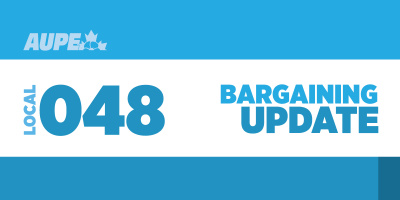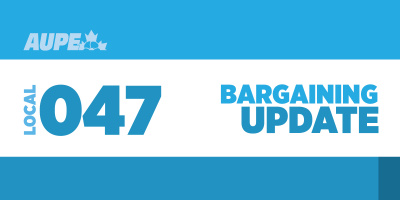Points West Living seniors care staff return to work after six months on the picket line
On July 8, more than six months after they''d been locked out by their employer, AUPE''s Points West Living Cold Lake members traded their picket signs for the contract protecting quality care they''d been fighting for all along.
After being locked out for 190 days, these members returned to work as different people, having tapped into reserves of strength and bonds of solidarity they could not previously have imagined. They came back to work in a different legal landscape and the stand they took proved front line workers could be leaders in facing Alberta''s seniors care crisis head on.
"These brave members risked everything to stand up for themselves and the residents they care so much about," said AUPE Vice-President Mike Dempsey. "They fought hard, and they now have a contract that takes positive steps toward real improvements to care."
The collective agreement prohibits PWL Cold Lake from contracting out, recognizes concerns regarding workload and short staffing, and brings wages close to industry standards by the end of the contract.
Just a few weeks before the Cold Lake workers ratified their first contract on June 22, their future seemed anything but certain. On May 25, PWL announced it would terminate nursing care workers and contract out their jobs. The move came just one day after the Alberta government introduced Bill 17, the Fair and Family-friendly Workplaces Act, with provisions to settle first contracts in newly unionized sites such as PWL Cold Lake.
The Cold Lake lockout was no doubt top of mind for the government while drafting this legislation, given it was the first health care labour dispute under the NDP''s watch. The new law should reduce the number of first contract disputes by allowing for binding arbitration when a first collective agreement cannot be reached through negotiations.
Bill 17 also brought the private seniors care sector in line with public health facilities, ending the ability of employers like PWL to use scab replacement workers during disputes and extending the requirement to have an Essential Services Agreement in place before a strike or lockout.
However, extending the "essential" designation to private seniors care has also underlined fundamental problems with how this parallel system puts downward pressure on working conditions, sidesteps regulations that apply to the largely public long-term care facilities and shrouds in secrecy the uses of public funds going to private operators-questions that continue to hang over ongoing AUPE negotiations, including at other PWL sites.
The Cold Lake workers spoke out about all these issues, as they quickly learned they were not alone in facing problems such as short staffing, arbitrary scheduling and concerns about training. Newly minted as seniors care advocates, they united with residents, family and other community members and traced their concerns to the root in Alberta''s continuing care regulations. Although these regulations remain unchanged, the PWL workers gave new urgency to calls for government action on seniors care.
Perhaps most importantly, the Cold Lake workers led by example.
"It''s been tough process, but we''ve really learned a lot about how to be advocates for the quality care our residents deserve," PWL Cold Lake bargaining committee member Lianne Dumais told her co-workers the day a settlement was reached.


